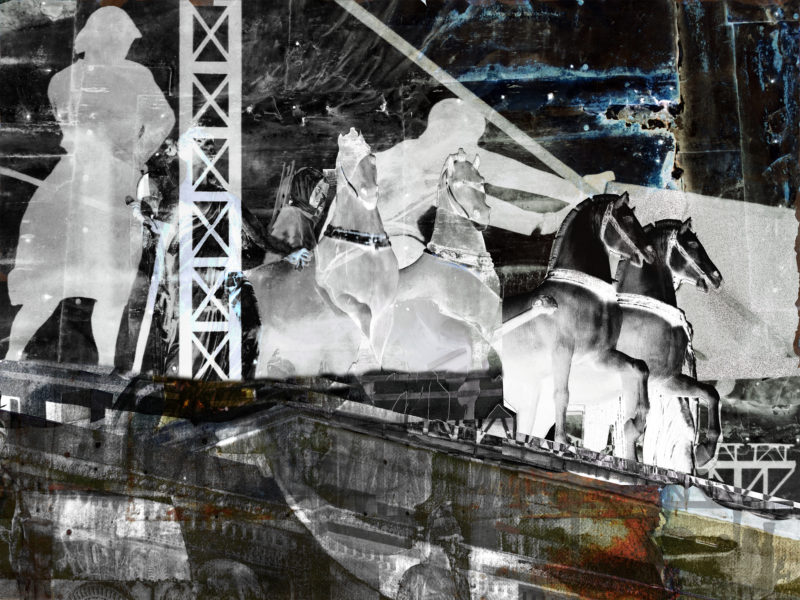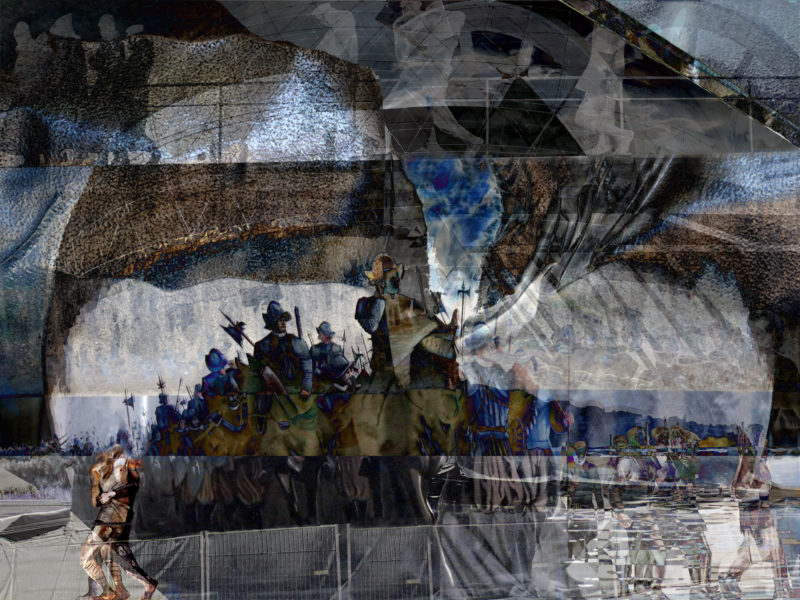We’ll never know
· The Armed Man/Charge! ·
“Cousin Swift, you will never be a poet!” John Dryden, famous man of letters at the end of the 17th century, is alleged to have said this to Jonathan Swift, one of the brilliant minds of the beginning of the 18th century. We’ll never know if this encounter actually occurred and led to Swift’s realization of his strength, satirical prose (think: Gulliver’s Travels), but we do know that Swift nurtured a life-long enmity toward his distant relative Dryden, even after the latter had long died. This in spite, or perhaps because of, so many parallels in the lives of these gifted men, their shifting allegiances towards crowns and religions, their insight into the irrational nature of man and the fact that economic considerations were a driving force behind imperials wars.
Why am I bringing this up? Jenkins’ 7th movement of The Armed Man, called Charge! is using words from both sources, intermingling Dryden’s patriotic call for duty with the lament offered by Swift.
(Music here:https://www.youtube.com/watch?v=BNrD305XbXg). Did the composer or did he not know about the strained relationship between the writers? Was he just taking familiar words that seemed to express the polar experiences towards engaging in battle, or was it an inside joke, to join the two at last? We’ll never know that either.
I admit to using my own inside jokes occasionally when creating montages, or to using allusions that make only sense to me. That is the privilege of creating. Explaining them makes little sense, and, more importantly, ruins the personal or overall interpretation viewers might bring towards the image, narrowing their impression to “trying to get it.” That said, the horses that charge into battle in the montage are from an arc de triomphe in the Louvre courtyard celebrating military victory. However, they reminded me also of Swift’s Houyhnhnm society, a nation of horses. That nation was founded upon reason, and only reason and therefore the horses practiced eugenics based on their analyses of benefit and cost, as we can read in part 4 of Gulliver’s Travels. Gulliver adored the horses despite them not having pity or believing in the intrinsic value of life. It did not end well….


